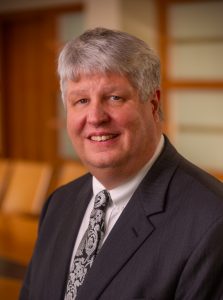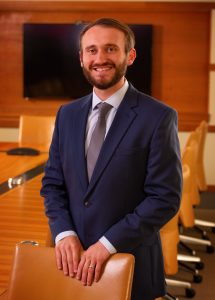The Wisconsin Fair Dealership Law Enters Its 50th Year: Adverse Actions
The Wisconsin Fair Dealership Law provides that a grantor cannot “terminate, cancel, fail to renew, or substantially change the competitive circumstances” of a protected dealership without providing good cause, proper notice, and an opportunity to cure. Wis. Stat. §§ 135.03-.04. Most adverse actions are easy to identify: a phone call terminating the relationship, a letter stating that a certain product line would no longer be offered to the dealer, or a notice that the dealership will not be renewed for another term. But other adverse actions are less obvious—e.g., the accumulation of dozens of individually minor changes that taken together yield a dealership that looks substantially different than it ever has before. While some adverse actions are discussed in greater detail below, as a rule of thumb, a grantor acts contrary to the WFDL if (1) the grantor attempts to end the parties’ relationship, or (2) the grantor attempts to fundamentally redefine the parties’ relationship. In either event, failing to take such actions without providing good cause, proper notice, and an opportunity to cure will subject the grantor to liability.
Termination and Cancellation
The WFDL provides that a grantor may not terminate or cancel a dealership without complying with the statute’s cause, notice, and cure protections. Some have turned to the Uniform Commercial Code definitions to draw a distinction between termination and cancellation. Under the UCC, cancellation occurs when a party ends a contract for the sale of goods for a breach by the other party, whereas termination occurs when a party ends a contract for the sale of goods pursuant to a “power created by agreement or law.” See Wis. Stat. § 402.106(1), (7). While a WFDL-protected dealership is more than just a contract for the sale of goods, i.e. it is a detailed and involved relationship between two businesses, the distinction drawn by the UCC is nevertheless informative.
Termination is self-explanatory: the grantor ends the relationship and ceases its association with the dealer. Most commonly, termination occurs when a grantor explicitly ends the parties’ relationship. In the case of a written agreement, termination is likely to be issued in compliance with the agreement’s term and termination provisions. As discussed in a prior post, issuing termination pursuant to an agreement does not relieve the grantor of complying with the statute’s notice and cure provisions, even if the agreement says otherwise.
Although less common, termination can also occur where a grantor makes the operation of the dealership infeasible. For instance, if a grantor fails to fill orders from a dealer, greatly raises prices, or undertakes any action that materially frustrates a dealer’s ability to continue to operate the dealership, then a constructive or de facto termination likely exists. While the statute does not explicitly recognize constructive terminations, courts have routinely recognized that dealers are protected from constructive terminations to the same degree that they are protected from other terminations.
Failure to Renew
Failing to renew a contract is not the same as terminating a contract. Written dealership agreements commonly feature both termination and renewal provisions. A failure to renew occurs after the term of the contract has expired and the grantor has refused to extend the agreement. Thus, even where a contract provides that it is for a set number of years, if a protected dealership exists, that contract must continue on the same terms unless either (a) the parties agree to a new contract with different terms or (b) the grantor has good cause to not renew the agreement and otherwise complies with the statute’s notice and cure protections.
Substantial Change to Competitive Conditions
The WFDL protects dealers from having the nature of their business significantly changed without either their agreement or the grantor complying with the statute’s good cause and notice provisions. This is true even where the parties’ agreement seems to authorize the grantor to make the purported change. Common examples of changes in competitive conditions include a grantor deciding to cease production of a particular product line or allowing another distributor to sell in the dealer’s territory. Changes, such as those examples, do not instantly violate the WFDL; a change to competitive conditions violates the WFDL where is (1) “substantial,” such that it affects material aspects of the parties’ relationship and (2) affects the dealer’s ability to compete in the marketplace, as opposed to just minimally affecting the dealer’s bottom-line. To that end, a dealer is likely protected under the WFDL where a grantor seeks to impose new, exacting measures on a dealership that pose a significant harm to the dealer’s business operations, but the dealer will likely face difficulty proving protection under the WFDL when a grantor seeks minor, incidental changes to the parties’ relationship. (Note, however, that seemingly minor changes can accumulate so that the aggregate effect is substantial; in such instances, the dealer may have an argument under the WFDL.)
***
Dealers and grantors alike should consult with experienced counsel when change in the parties’ dealership is on the horizon. This is especially true where the grantor seeks to terminate or cancel the parties’ relationship. For over 50 years, Stafford Rosenbaum LLP’s Dealership and Franchise Law Team has helped grantors and dealers understand their rights and obligations under the WFDL, and we have seen more than our fair share of litigation over attempted terminations, non-renewals, and substantial changes to a dealer’s competitive conditions.
Stafford Rosenbaum LLP is a full-service law firm with two convenient office locations in Madison and Milwaukee, Wisconsin. Over 140 years of dedication to businesses, governments, nonprofits, and individuals has proven that effective client communication continues to be the heart of our practice.





